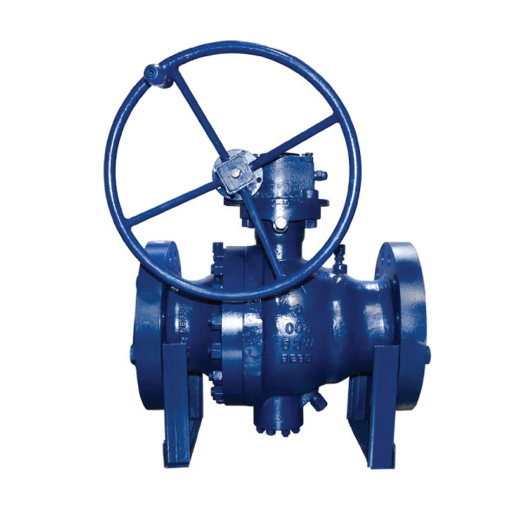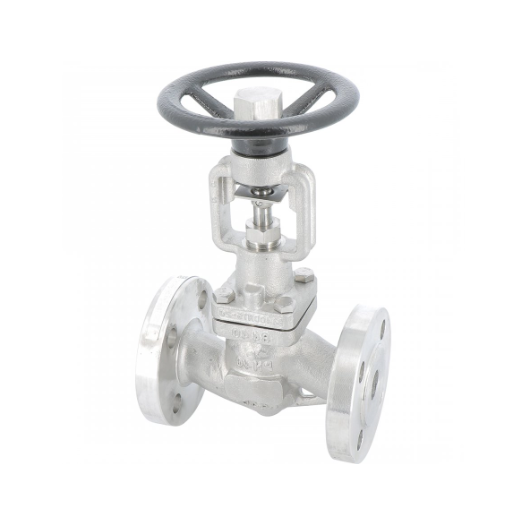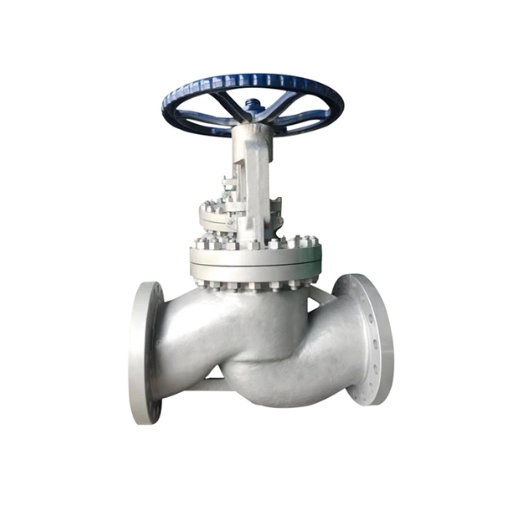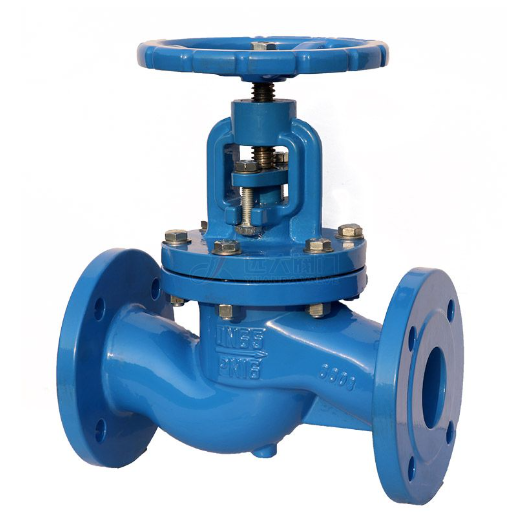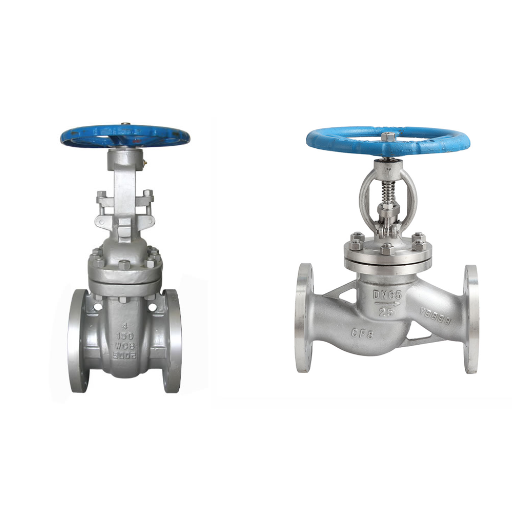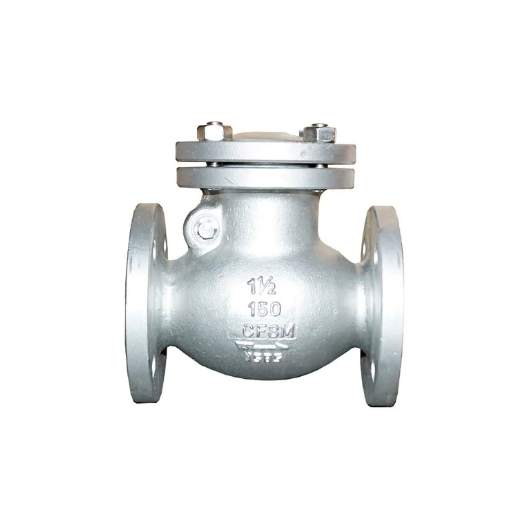Metal gaskets are ever so critical to getting the best decision placed within industrial applications. Being sturdy and able to resist the harshest conditions has made these gaskets the most pursued ones in automotive, aerospace, power generation, and manufacturing industries. But what makes these metal gaskets more special than other sealing solutions? Here are some advantages metal gaskets have to offer, boasting strength, versatility, and enhanced performance when subjected to high pressure and temperature. Whether you want to enforce safety or aim at long-run cost effectiveness, the knowledge of what metal gaskets can service is right up there. Read on to know why metal gaskets are so crucial in critical sealing applications.
Understanding Gaskets
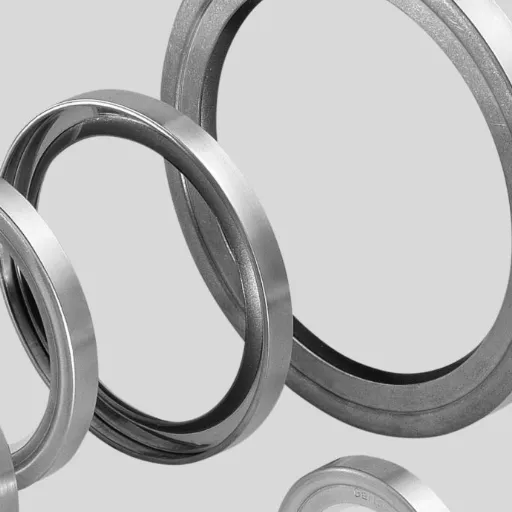
Gaskets serve as mechanical seals to fill the space between two surfaces, preventing leakage of liquids or gases. The stretch-out goal is to ensure sealing under extremely harsh conditions, including high pressure and temperature. Gaskets assure the proper working and safety of all sorts of machinery and systems in various industries, from automotive to aerospace, to manufacturing. The materials used are metals, rubber, or composites, based on the application needs.
What is a gasket?
A gasket is technically a mechanical seal that fills the irregular space between two or more mating surfaces, thereby preventing leakage from or into the joining surfaces under compression. It is intended to maintain a tight seal even under testing conditions like heavy pressure, extreme temperature, and chemical exposure. Gaskets are very crucial and vital to enable industries such as automotive, aeronautics, and manufacturing to work safely and efficiently.
Types of gaskets: Metallic vs Non-metallic
Metallic Gaskets
Constructed from materials like steel, copper, or aluminum, providing high-strength seals for hostile environments with extreme pressure and temperature conditions. Ideal for industrial applications demanding strength and resistance.
Non-metallic Gaskets
Made from flexible materials such as rubber, silicone, or graphite, offering flexibility within limits. Favored in low pressure systems or where soft seals are needed to minimize damage to mating surfaces.
Key functions of a gasket
- Reliable Sealing: Install a reliable seal between two or more mating surfaces, preventing leakage of liquids, gases, or other substances
- Pressure Maintenance: Maintain pressure levels within the system for optimal performance
- Vibration Protection: Cushion mechanical vibrations and compensate for uneven joint surfaces
- Surface Compensation: Provide compensation for irregularities and imperfections of joining surfaces
The effectiveness of any gasket arises from the proper choice of materials and design that suit the requirements of the given application, ensuring machinery or systems run efficiently with enhanced durability.
Benefits of Using Metal Gaskets
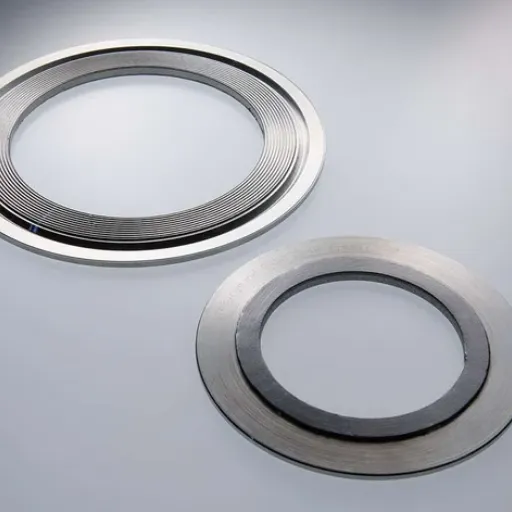
Key Advantages Summary
Durability
Wear resistance to corrosion, high temperature, and high pressure
Sealing Performance
Reliable seal preventing leaks in extreme conditions
Chemical Resistance
Resist corrosive materials in adverse chemical environments
Customization
Designed according to specific requirements for any system
Detailed Advantages of Metal Gaskets
A metal gasket possesses key advantages, becoming very reliable in varied industrial applications. High-temperature gaskets are excellent at withstanding extremes of temperature and pressure, ensuring a good seal even under tough ambient conditions. Being resistant to chemical corrosion guarantees their durability and longevity, especially when exposed to harsh conditions promoted by aggressive substances. Individually machined to specific operating needs, metal gaskets can be fitted into diverse systems and machinery. These features guarantee that metal gaskets are versatile and cost-effective from an industrial perspective, particularly where performance and reliability are paramount, such as in automotive, oil and gas, and manufacturing.
Benefits of metal in high-temperature environments
High-Temperature Performance Features:
- Retain structural integrity and strength under extreme heat
- High melting points prevent deformation and degradation at elevated temperatures
- Excellent heat conductors (especially stainless steel and certain alloys)
- Enable efficient heat transfer processes and prevent overheating
- Withstand thermal fatigue in demanding industrial applications
These characteristics make metals particularly apt for applications in aerospace, power generation, and chemical processing industries, where performance under extreme heat conditions is required.
How metal gaskets prevent leaks
Metal gaskets help prevent leaks by creating a strong, airtight seal between two mating surfaces even under high pressures or temperature extremes. The strength of the gasket allows it to withstand deformation, which otherwise results in losing surface contact and leaving gaping seals or irregularities between surfaces. Additionally, the thermal and chemical resistance of metal ensures that these gaskets will perform well wherever variable temperatures or corrosive substances are factors. In such cases, metal gaskets become an invaluable requirement where preventing any form of leakage could spell disaster to either safety or efficiency of critical systems in pipelines and engines.
Applications of Metal Gaskets
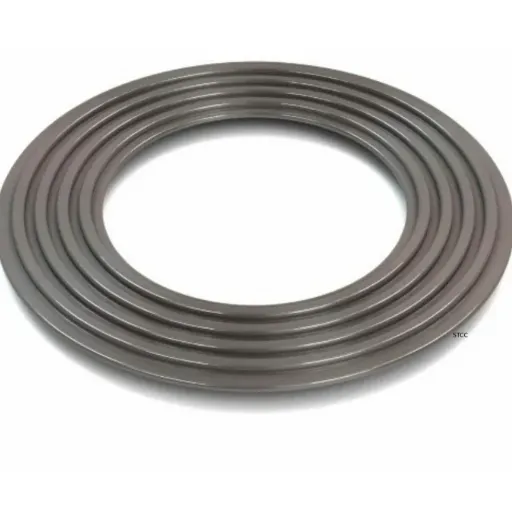
Metal gaskets are used in areas of extreme durability and reliability. Extreme conditions are the reasons for their indispensability in these industries.
Common Applications
🔧 Pipelines
Ensuring leak-proof connections in oil, gas, and water distribution industries
🚗 Engines
Providing sealing mechanisms in automotive, aerospace, and marine engine operations
🏭 Industrial Equipment
Machines and manufacturing plants preventing leakage of fluids or gases
🧪 Chemical Processing
Handling corrosive substances at extremely high temperatures and pressures
⚡ Power Plants
Usage in turbines, reactors, and boilers to provide secure seals
Industries that benefit from metal gaskets
| Industry | Applications | Key Benefits |
|---|---|---|
| Automotive, Aerospace & Marine | Engine systems, fluid leak prevention | Safety assurance, system reliability |
| Industrial Manufacturing | Machinery, manufacturing processes | Operational integrity maintenance |
| Chemical Plants | Corrosive materials, high-temperature/pressure mediums | Chemical resistance, safety compliance |
| Power Generation | Steam turbines, nuclear reactors, boilers | Secure seals, efficient operation |
| Oil & Gas | Pipelines, refineries, high-pressure systems | Pressure loss prevention, temperature resistance |
Choosing the right metal gasket for your needs
Selection Criteria:
- Operating Conditions: Consider pressure, temperature, and chemical properties of substances the gasket will face
- Material Compatibility: Ensure compatibility between flange material and sealing surface design
- Environmental Factors: Assess resistance requirements for corrosion, thermal cycling, or extreme pressures
- Expert Consultation: Seek advice from reputable manufacturers or suppliers for optimal selection
Comparative Analysis of Gasket Materials
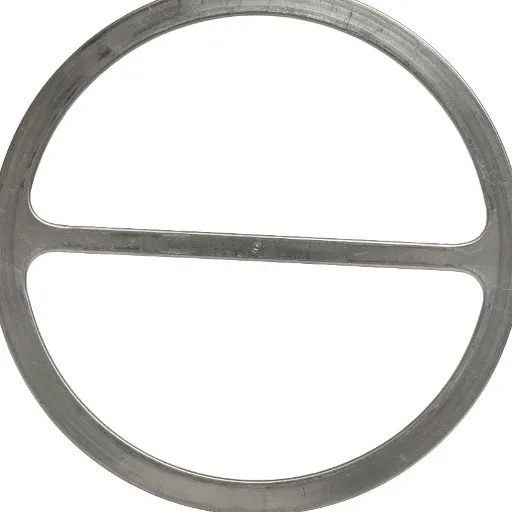
When comparing gasket materials, one must consider the factors of durability, compatibility, and how they can perform under certain conditions. Weighing the application environment is the primary consideration in deciding what to use.
Material Comparison Overview
Rubber & Silicone
Best for: Applications requiring elasticity and resistance to moderate pressures
Characteristics: High flexibility, moderate durability
Graphite & PTFE
Best for: Heat or corrosive agent exposure
Characteristics: Heat resistance, corrosion resistance
Composite Materials
Best for: Applications requiring compromise between properties
Characteristics: Mixed properties, balanced performance
Metallic vs Non-metallic gaskets
✨ Metallic Gaskets
- Strong, durable construction
- Perfect seals at high pressure and temperature
- Made from stainless steel and alloys
- Resist temperature variations
- Handle mechanical stresses effectively
🌿 Non-metallic Gaskets
- Flexibility and chemical resistance
- Suitable for low pressure systems
- Made from rubber, PTFE, or graphite
- Soft seals minimize surface damage
- Ideal for specific operating conditions
When to use metal gaskets over non-metallic
Preferred Conditions for Metal Gaskets:
- Extreme Heat: When high temperature conditions exist
- High Pressure: Applications with significant pressure requirements
- Chemically Aggressive Environments: Where non-metallic materials might degrade
- Industrial Processes: High-pressure steam systems and oil and gas applications
- Thermal Cycling: Systems subject to large temperature variations
Industry standards for gasket materials
Industry standards for gasket materials are set to ensure safety, reliability, and performance in any given application. The standards require consideration of certain properties such as tensile strength, temperature resistance, chemical compatibility, and pressure ratings.
| Organization | Standard | Application |
|---|---|---|
| ASTM International | ASTM F104 | Classification system for gasket materials |
| ASME | ASME Standards | Pressure vessels and piping systems |
| ISO | ISO Standards | International quality and performance benchmarks |
Observance of standards is crucial for gaskets intended to perform within the working environment and under given conditions in favorable expectations of regulators and industry requirements.
Frequently Asked Questions (FAQs)
What are the Key Benefits of Metal Gaskets?
Metal gaskets offer superior sealing for a wide variety of applications and are regarded as essential components in many industries. They handle high-pressure, high-temperature environments while ensuring reliable performance under arduous conditions. One of the key benefits of metal gaskets is heat resistance, especially during handling of hot fluids or gases. Metal gaskets also resist corrosion very well and thus can be used in harsh environments. The strength and life of metal gaskets support cost savings due to fewer replacements and downtime. Overall, metal gaskets remain effective for varied sealing needs.
What are the Applications of Metal Gaskets?
In different fields of industry, metal gaskets are used, such as automotive, aerospace, oil and gas, and power generation. They provide usefulness in applications involving valves, flanges, and heat exchangers where safety is of utmost priority. Semi-metallic gaskets like spiral wound gaskets and kammprofile gaskets are frequently employed in high-pressure applications to establish sealing. These gaskets resist extreme temperature and high pressure, making them suitable for demanding industrial environments. They resist corrosion, maintaining integrity through time, which gives a good advantage in demanding environments, making them among the top choices for many applications. Choosing proper gasket material is important for proper performance and longer life.
How to Choose the Right Metal Gasket for Your Needs?
Consider the environment, pressure, and temperatures when selecting a gasket. Metal gaskets are for high-temperature applications, and specificity would go a long way in choosing the right gasket for your application. Evaluate types of gaskets available, such as solid metal, semi-metallic, and non-metallic gaskets, and their advantages. Also, evaluate material combinations that can help resist corrosion and wear required for your application. With these considerations, you can be confident that your gasket selection adheres to applicable industry standards and is perfectly suitable for your application.
What Makes Metallic Gaskets Different from Non-Metallic Gaskets?
Metallic gaskets enjoy benefits over non-metallic types. They achieve better sealing under high pressure and temperature. In corrosive environments that would degrade sealing elements, metallic gaskets assure sealing against leaks. A myriad of material options offered to metallic gaskets enable them to be more efficient in severe industrial environments. Often, where durability and reliability are required, metallic gaskets take precedence over their non-metallic counterparts that may be suitable for less demanding applications.
What are the Features of Metal Gaskets?
Whether it is a water or oil sealing application, metal gaskets are robust and versatile. They are engineered to maintain a seal when temperature or pressure changes. Most metal gaskets, like spiral wound gaskets, are made from combinations of materials that improve sealing, whereas the unique design of kammprofile gaskets guarantees a tight fit. Generally, metal gaskets are manufactured to industry standards, ensuring the quality and performance of any gasket. Their corrosion and abrasion resistance further govern their service life and performance in different industrial applications. The modern features of metal gaskets make them a dependable option for most sealing applications.
Reference Sources
- DXT Seals: This article highlights the benefits of metal gaskets, such as high-temperature resistance, exceptional pressure resistance, and durability. Read more here.
- Monroe Aerospace Blog: This beginner’s guide explains why metal gaskets are preferred, focusing on their ability to withstand heat and pressure. Explore the guide here.
- OGS Industries Blog: This resource discusses how metal gaskets prevent leaks and maintain pressure in demanding environments. Check it out here
- Top Metal Gaskets Suppliers in China

